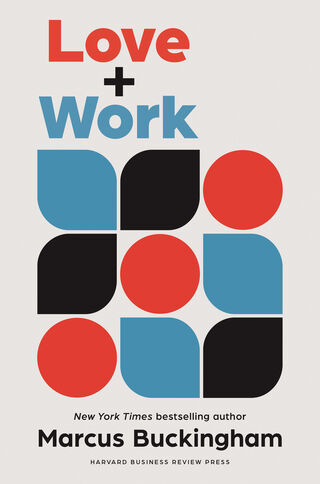The alarm pierces your brain as you hit the snooze button one more time. The covers get pulled over your head as you dread another workday looming before you. You ask yourself, when you finally gather the strength to lift your frame from your cozy covers, how much longer you can do this. And, when, exactly, did you lose that fire that had you take the job in the first place?
Happiness, and its cousin joy, are not personality traits. They are a state of mind. Anyone can — and should — experience joy in their lives. But according to recent research, employee engagement has hit a 10-year slump with only 34% of US employees claiming they are engaged at work. That means a full two-thirds of the workforce does not feel engaged at all; according to the same survey, 16% reported being actively disengaged; the question is why do so many people feel so awful and why do they spend the majority of their waking hours doing things they despise?
Interestingly, Marcus Buckingham, the co-developer of Gallup’s CliftonStrengths assessment, which emphasizes your core strengths over a range of 34 characteristics, just penned a book called Love + Work: How to Find What You Love, Love What You Do, and Do It for the Rest of Your Life that focuses on all aspects of human thriving. It comes down to better understanding ourselves to know which environment we require in order to lead happy, fulfilling lives. It sounds like quite a privileged position, given how the pandemic and war have thrown a planet-sized monkey wrench into all of our lives. To be employed, no matter how dreadful, is better than not to be, right? The main idea of Buckingham’s work is based on the understanding that finding some love within your job is psychologically healthy. No matter what the job is — from housekeeping to the C-suite — all humans need expression. Otherwise, you experience alienation in which you become a stranger to yourself. The question he encourages people to ask is: “What is most nourishing to me in every domain of my life as I move through it?”

Buckingham states that our daily struggles originate from a lack of love in our work lives. Because work takes up a majority of our waking hours, he provides a recipe for bringing love, the centerpiece of human existence, back into our personal bank account of time. His intention with this book, his tenth altogether, is to offer a way to infuse love primarily into our work, but in a broader sense, his ideas spill over into our personal lives and overall communities too.
Drawing on nearly two decades at Gallup, where he developed the StrengthsFinder assessment alongside Donald Clifton, to now head of the ADP Research Institute focused on studying all aspects of human thriving, Buckingham helps readers better understand themselves—that is, what makes them excited, lifts them up, drags them down, and—most critically—what, who, why, and how they love.
According to Gary Chapman’s 1992 book The 5 Love Languages, people have a specific love language divided into five categories: words of affirmation, physical touch, acts of service, material gifts and quality time. In a sense, Buckingham’s book is a unique combination of Dick Bolles’ classic job-hunting guide What Color is Your Parachute and Chapman’s The 5 Love Languages. In other words, identify what your strengths are and what you love most. Then find ways to express that love in all aspects of your life.
Once equipped with this deeper self-understanding, Buckingham guides readers on how to bring love front and center into their lives and to fend off what he calls the seven devils that tempt people away from their path.
They include:
- Group-Think (believing what people say about you and your ‘label’.)
- Excellence Curse (your strengths are not necessarily what you excel at.)
- Mis-Instinct (when someone convinces you your loves aren’t real and you lose trust in your instincts.)
- Feedbacking (other people’s advice can be damaging. Listen first to yourself.)
- Fear-Fighting (fear wants to be heard and it won’t stop until you love on it.)
- Rate-Me-Rank-Me (the pitfalls of comparing yourself to others.)
- Suckitup (love is not a luxury.)
THE BASICS
Buckingham summarizes it beautifully when he states: “Loves, expressed, are a necessity for us all. Stifle them, deny them, block their flow, and they will destroy you from the inside out.” If we can identify what turns us on (and off), we are halfway there to leading a life we love — and with it, the opportunity to become the biggest version of ourselves. With this knowledge, we can engage less in that morning pep talk to remove those covers and engage more in the work we do once we rise and shine.
"Love" - Google News
April 05, 2022 at 08:33PM
https://ift.tt/cx2KqRb
How to Love Your Work Again - Psychology Today
"Love" - Google News
https://ift.tt/cu5zdiv
https://ift.tt/6FASq9U
Bagikan Berita Ini














0 Response to "How to Love Your Work Again - Psychology Today"
Post a Comment